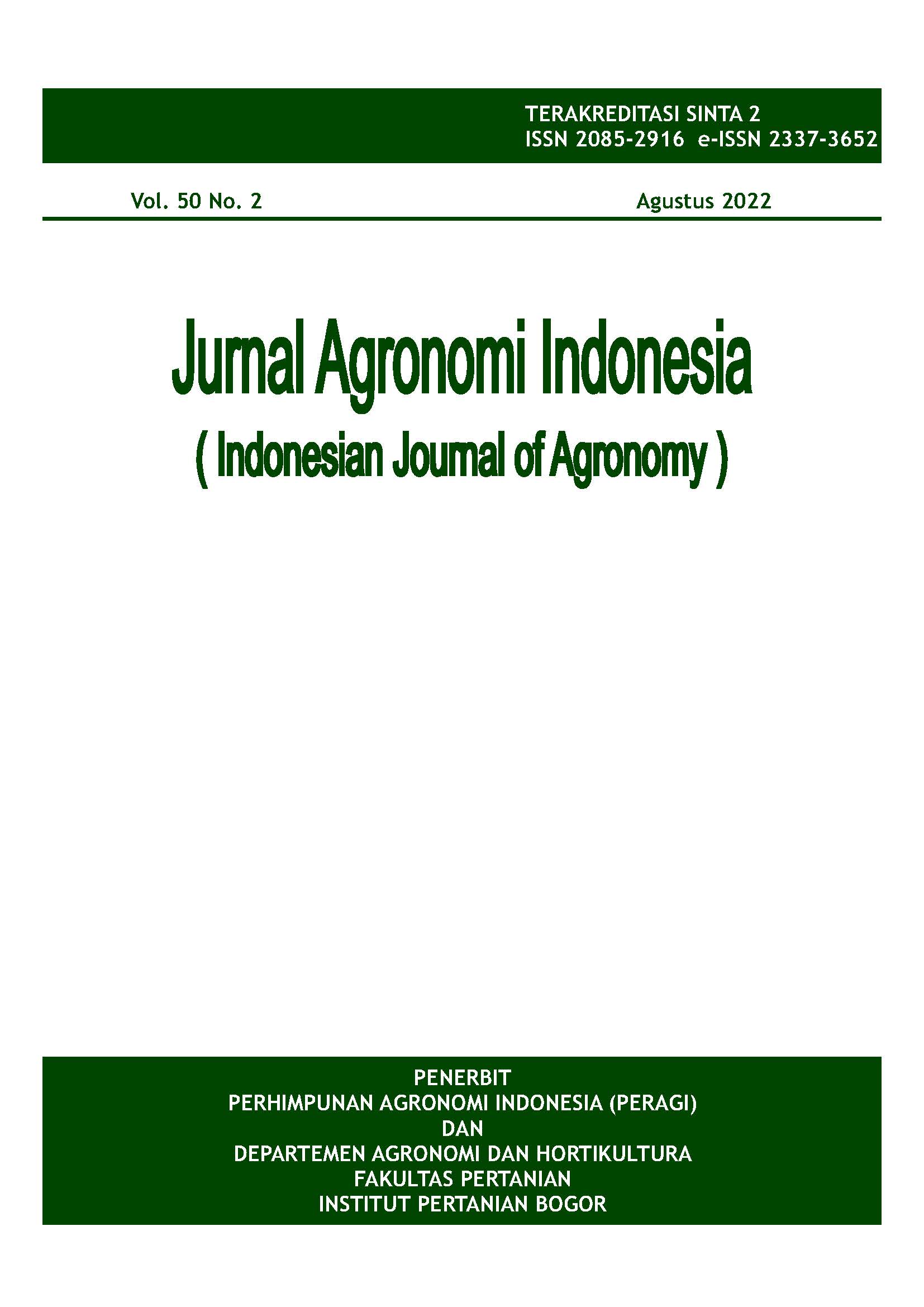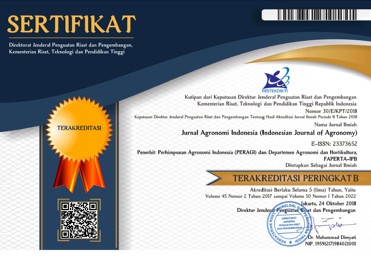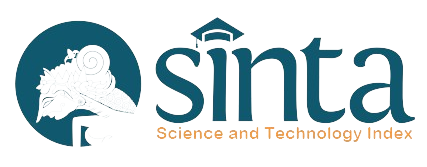Morpho-physiological Characterization and Genetic Diversity of Cocoyam Accessions (Xanthosoma sagittifolium (L.) Schott)
Abstract
Tania or cocoyam (Xanthosoma sagittifolium (L.) Schott) is a member of Araceae; the cormels contain carbohydrate that is valuable in the food industry and to supports food security. However, information on the diversity in cocoyam accessions to support higher productivity and breeding program is still limited. The research aimed to characterize morpho-physiology and diversity of cocoyam accessions. The research was carried out from December 2018 to July 2019 at the Leuwikopo Experimental Farm, IPB Bogor. The research used seven accessions collected by the Agency for the Assessment and Application of Technology (BPPT) namely S8, S22, S27, S29, S31, S32, and S37. Accessions were maintained with a spacing of 50 cm x 50 cm under 50% shading net. Cluster analysis used the unweighted pair group method using the arithmetic average (UPGMA) method. The study showed that there was diversity in 31 of the 51 morphological and physiological characters. Of the 31 various variables, only 14 variables had a PIC value of more than 0.5. The color of the inner petiole and stomatal density were important characters in the characterization of cocoyam because it had the highest diversity. At the accession level, they were grouped into two groups, Group I had accession S29 members, and the rest were grouped into Group II. Group II had three subgroups, namely A (S8 and S32), B (S22, S27, and S31), and C (S37). Accessions S27 and S31 had a high degree of similarity.
Keywords: Araceae, climate change, dry land, food security, tannia













